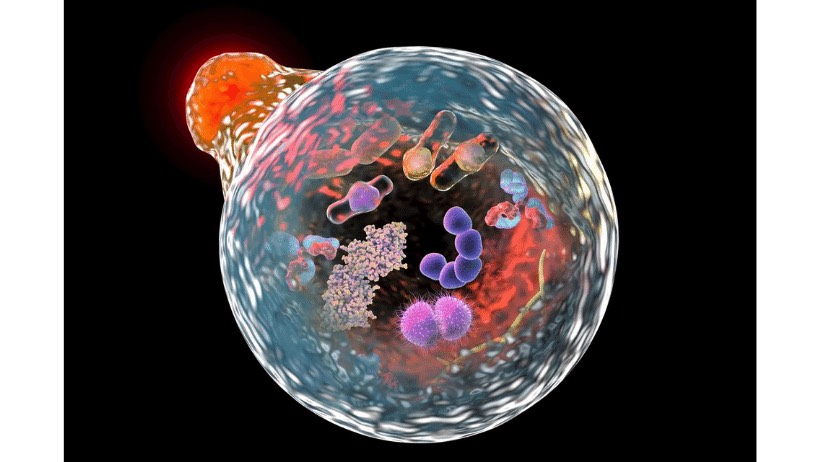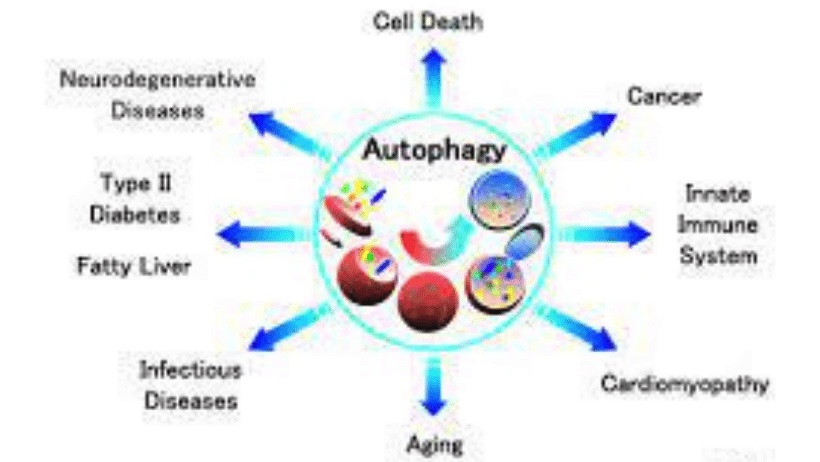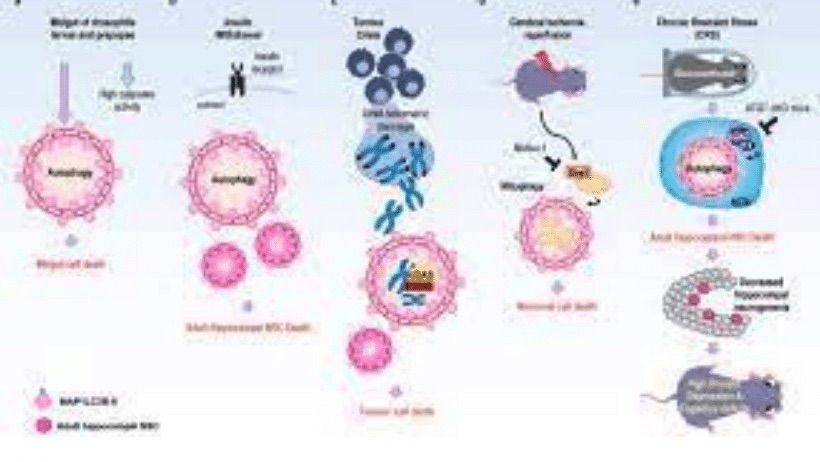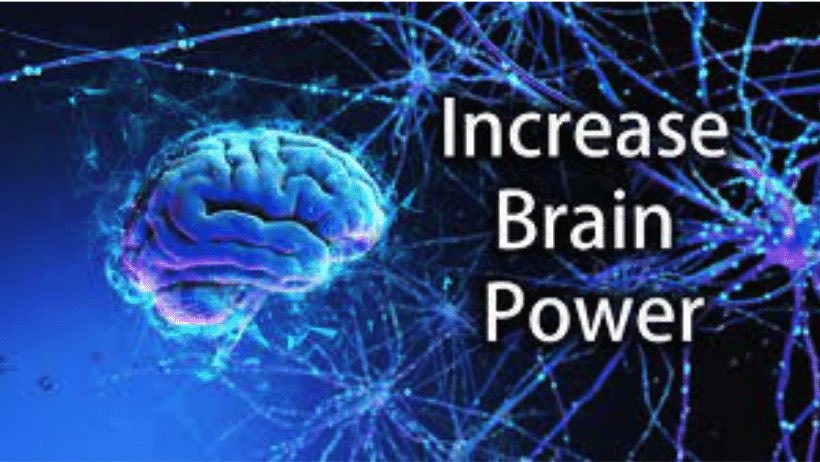Autophagy

Autophagy is the process by which your body replaces destroyed cells with new ones. There is a long list of potential health benefits associated with it. There is some evidence that it may slow the development of conditions such as cancer, type 2 diabetes, and Alzheimer’s disease, for example. →
What is autophagy?
In 2016, Japanese scientist Yoshinori Ohsumi won the Nobel Prize for research on how cells break down and recycle their contents, an aspect of metabolism linked to cancer, diabetes, and neurologic disorders that can be therapeutically manipulated. →

As part of autophagy, the body breaks down old damaged cells to make room for new healthy ones. Autophagy also destroys bacteria and viruses, and may even prevent cells from becoming cancerous. As a result of autophagy, your immune system may even be strengthened against viruses, bacteria, and cancer cells.
During autophagy, damaged cells are removed from the body in order to regenerate healthier cells. In Greek word “auto” means “self”, and the word “phagy” means “eat”. In other words, autophagy means “self-eating.” Despite the fact that it may seem like something you would never want to happen to your body, it helps your health in the long run. As a self-preservation mechanism, autophagy removes dysfunctional cells and recycles parts of them for cellular repair.
There are a number of ways in which autophagy contributes to cell survival. Proteins and organelles that have been damaged are recycled by it. During autophagosome formation, cellular waste is engulfed and transported to a lysosome, where enzymes break it down into nutrients and building blocks. Bacteria and viruses are captured and eliminated by cells using these same tools. Cells can obtain emergency fuel by eating themselves through autophagy in evolutionary response to starvation.→
What are the benefits of autophagy?
Autophagy appears to have major anti-aging benefits. Autophagy has the following benefits at the cellular level:
- on a larger scale, it stimulates the regeneration of healthy cells
- assisting in repairing damaged cells by providing energy and building blocks
- neurodegenerative diseases, such as Parkinson’s and Alzheimer’s, are attributed to toxic proteins in the cells
- residual protein recycling

There is a lot of interest in autophagy because of its possible role in preventing or treating cancer.
It is true that all cancers start from defective cells, but the body should recognize and remove those cells through autophagy. This is why some researchers are investigating the possibility that autophagy may reduce cancer risk.
Despite the lack of scientific evidence, some studies suggest that autophagy can remove various cancerous cells. New studies are expected to provide insight that will help them target autophagy as a cancer therapy.→
There are several ways to speed up autophagy, even though it occurs constantly within your body. Among these are fasting, exercising, and limiting your calorie intake. Low-carb, high-fat ketogenic diets can also help autophagy by promoting ketosis, a metabolic state where fat is burned for energy instead of sugar.→
Autophagy signs and symptoms
If you aren’t a trained and experienced scientist or researcher, measuring autophagy at home can be difficult. In spite of the difficulty in measuring autophagy, here are a few signs that indicate autophagy:
Reduced appetite: The reduction of appetite is one of the key signs of autophagy. It may be caused by changes in hormone levels such as glucagon and insulin. During autophagy, glucagon levels tend to rise. Blood sugar levels are managed by glucagon, and appetite is suppressed by it. As insulin levels decrease, your appetite may also decrease. Ketosis may also decrease levels of ghrelin, also known as the hunger hormone, which reduces feelings of hunger.
Weight loss: Weight loss is not directly related to autophagy, but many methods used to induce autophagy – such as calorie restriction – can lead to it. Additionally, fasting and ketosis can boost fat burning and support healthy body composition. Improved insulin sensitivity and the preservation of lean muscle mass are possible benefits. Furthermore, autophagy affects the levels of certain hormones, including glucagon, insulin, and ghrelin, resulting in a decrease in hunger. By reducing calories consumed, these effects could promote weight loss.

Autophagy signs and symptoms
Increased levels of ketones: As a result of not having enough carbohydrates to use as fuel, your body produces ketones from fatty acids. The production of ketones may stimulate autophagy, according to research. As a result, increased ketone levels can also indicate autophagy along with ketosis. Ketone levels in your blood, breath, or urine can be easily measured using special meters or strips to determine whether autophagy is occurring.
Enhanced brain function: Autophagy plays a central role in brain function and nerve cell health. In a study of older adults with mild mental impairment, intermittent fasting was linked to improved brain function. In another study of 883 older adults, the beneficial effects associated with intermittent fasting were partially attributed to autophagy. Aside from increasing autophagy, ketones are also an effective source of brain energy and could promote cognition.
Experiencing fatigue: Autophagy is one factor associated with fatigue. A ketogenic diet or fasting has been linked to low energy levels and fatigue when used to induce autophagy. Additionally, these eating patterns may lead to low blood sugar levels, which may contribute to fatigue. In most cases, this side effect will only last for a short period of time. It is important to remember that fatigue can also be caused by health issues such as nutritional deficiencies or psychological conditions. For those who are experiencing this symptom consistently, it is best to consult a doctor to make sure that there is no underlying health condition causing it.

Having bad breath: When following a ketogenic diet to stimulate autophagy, bad breath is a common symptom. Ketosis can cause bad breath. In ketosis, ketone levels increase, resulting in autophagy. The unpleasant odor, which is often described as fruity or metallic, is caused by a type of ketone called acetone. You can keep your breath fresh by brushing your teeth more often or chewing sugar-free gum. →
Conclusion
As more studies are conducted on autophagy’s impact on health, it will continue to gain interest. Currently, nutrition and health experts point out that we still need to learn more about autophagy and how to encourage it. If you’re interested in stimulating autophagy in your body, try fasting and regular exercise to get started.
Autophagy is not physically felt, but it can cause noticeable symptoms. Changes in metabolism or levels of specific hormones like insulin or glucagon can cause these symptoms. Nevertheless, if you are taking any medications, you are pregnant, breastfeeding, wish to become pregnant, or have a chronic condition, such as diabetes or heart disease, please first consult your doctor. →
Sources
https://www.rxlist.com/script/main/art.asp?articlekey=198549
https://www.webmd.com/multiple-sclerosis/keto-diet-and-multiple-sclerosis
https://www.healthline.com/health/autophagy
https://www.healthline.com/nutrition/signs-of-autophagy
https://www.ncbi.nlm.nih.gov/pmc/articles/PMC6387456/
https://www.nobelprize.org/prizes/medicine/2016/advanced-information/
